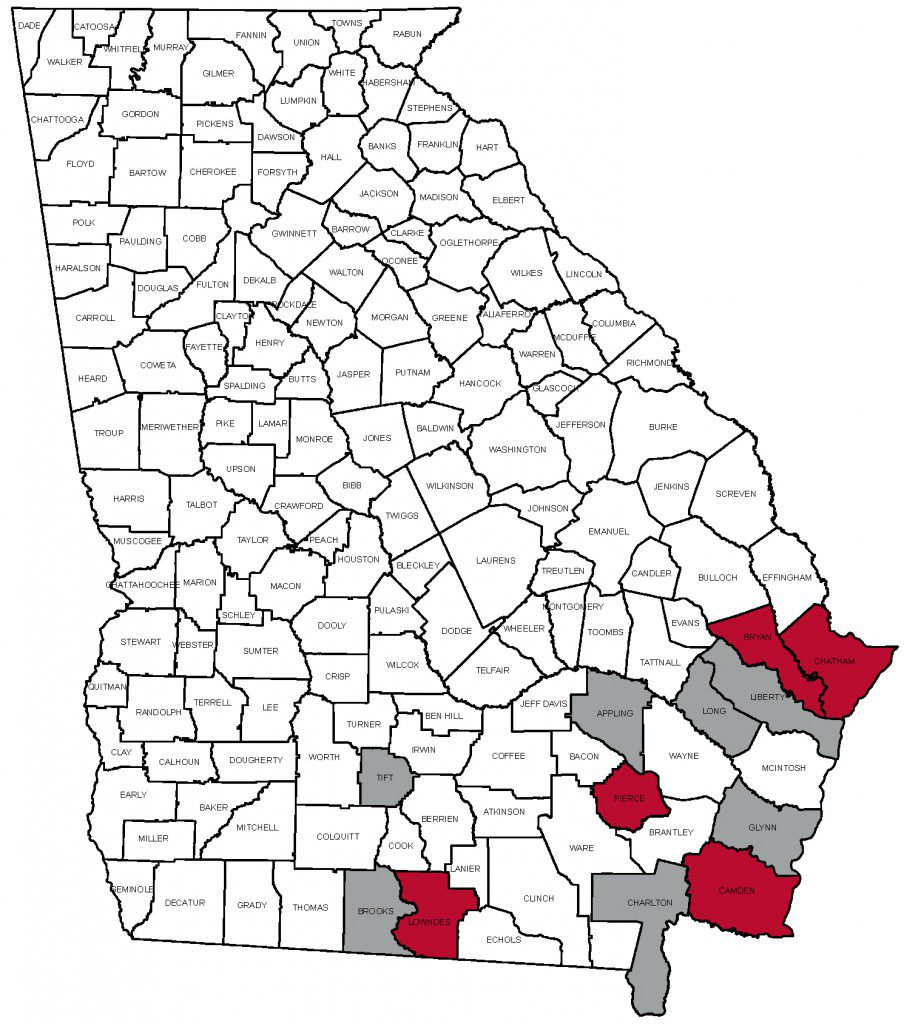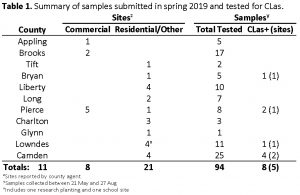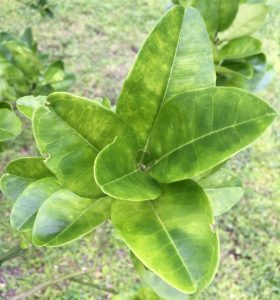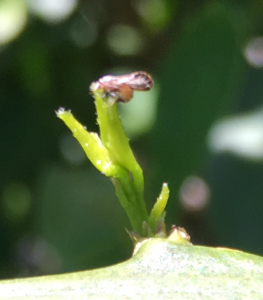
Survey Information:
In Spring 2019, a team of UGA extension specialists and agents initiated a survey of select residential and commercial citrus sites in southern and coastal Georgia to investigate the prevalence of Candidatus liberibacter asiaticus (CLas), the bacterium that causes citrus greening disease. Citrus leaf samples were collected during May through August 2019 and submitted to the UGA Plant Molecular Diagnostic Laboratory in Tifton. In total, 94 samples were tested for CLas from 8 commercial and 21 residential sites in 11 Georgia counties (Table 1; Figure 1). In total, 8/94 (9%) samples tested positive for CLas , with 4/11 (36%) counties and 5/29 (17%) sites having at least one positive sample. Three of the counties where CLas positive trees were detected in 2019 (Lowndes, Pierce, and Bryan) had not been previously known to have CLas positive trees. The eight samples testing positive for CLas came from five non-commercial sites. These consisted of four residential sites and one public school site.
 Citrus Greening:
Citrus Greening:
Citrus greening disease (Figure 2) or huanglongbing (HLB) is caused by the bacterium Candidatus liberibacter asiaticus (CLas). This bacterial species is vectored by the Asian citrus psyllid (ACP), an invasive species first found in residential citrus in southern Florida in 1998. CLas inhibits the flow of nutrients throughout the tree, causing premature fruit drop, lower fruit quality, and higher tree mortality. Since first being detected in 2005, HLB has spread throughout Florida, where it is estimated that over 80% of Florida’s citrus trees are currently infected. This has led to a more than 70% decline in citrus production. If greening were to establish in Georgia, it would become a grave threat to Georgia’s fledgling citrus industry. Though Georgia is currently under USDA-APHIS quarantine, extensive HLB surveys have not been conducted. Prior to 2019, small surveys have indicated the presence of HLB in Camden and Chatham counties, but only in residential trees, not commercial citrus. The psyllid vector has been previously found in all coastal counties in Georgia (Figure 3), and was found in Lowndes and Charlton counties in 2018.

